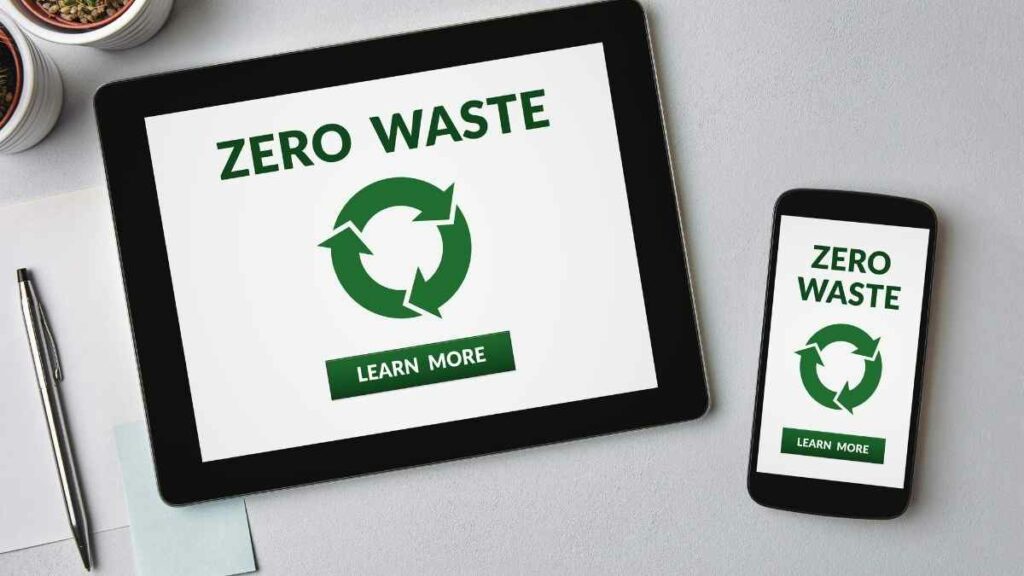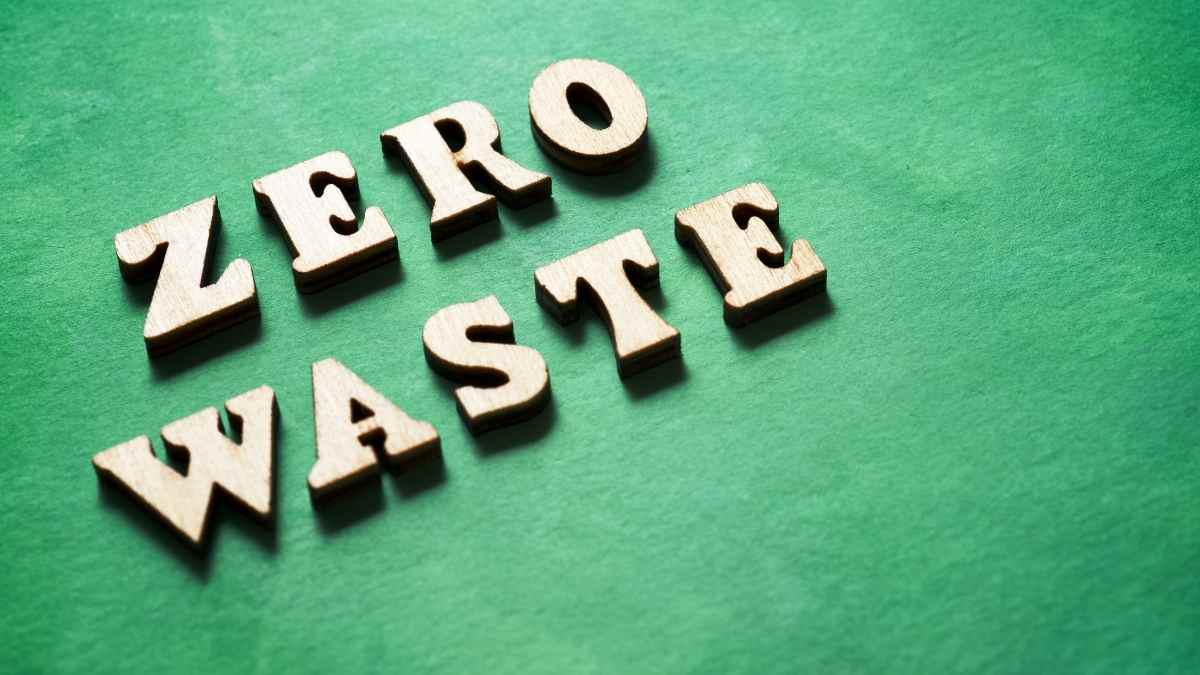Zero-waste living is a commitment to have zero or significantly reduced waste sent to a landfill. This involves a lifestyle implementing environmentally conscious choices such as refuse, reduce, reuse, and recycling.
If you’ve become concerned with what you’re environmental footprint looks like, or you’re just interested in what a zero-waste life looks like, then you have found the right website!
How does zero-waste help the environment? Let’s take a look.
What does Zero Waste Mean?

Zero waste is a lifestyle or workstyle taken on by individual persons and companies aiming to produce as close to zero waste as possible.
This is done mainly by making environment-conscious choices such as reducing, reusing, and recycling.
This conservation of resources results in significant sacrifices, but it is a concept that is worth looking into whether you are a company or just an interested person.
The main goal for any zero-waster is to reduce their environmental impact in hopes of a cleaner, greener future.
The upshot is that if you go for zero-waste products, then there are fewer products being created, therefore:
-

Fashionably Green and On-The-Go
£16.50 Select options This product has multiple variants. The options may be chosen on the product page -

Reusable and Ready Eco-Friendly Tote Bag
£16.50 Add to cart
- We use less greenhouse gas emissions
- Less raw materials are user
- Fewer natural resources are used to create products
These are only some of the benefits that a zero-waste approach can bring to the environment.
How Does Zero-Waste Help the Environment?

A zero-waste lifestyle helps the environment in more ways than you probably realize.
The obvious implication is that you reduce the amount of waste that ends up in the landfills, oceans, and eventually back into the human system. Still, there are even more social implications to think about.
If every human being were to adopt this lifestyle or the mindset at least, that would significantly change how corporations make their products, package their products, and even ship their supply.
Once large companies adopt zero-waste, the environmental benefit increases exponentially.
Here is how living zero-waste helps you and the environment:
- Less waste is slightly apparent but has a big impact on both the planet and humans. Less waste means fewer items taking up space in landfills.
- Less pollution – Perhaps the most significant benefit is the decreased pollutants from burning garbage or dumping it into the ocean. Oceans are littered with plastic.
- Change within the shopping industry – Idealistic, yet still critical. If we bought less, then less would be needed to be produced (and eventually wasted.)
- Less cluttered lives – Yes, it’s been proven time and time again that having a decluttered house, office, life leads to a happier one.
- Save money – Leading a zero-waste life will help you save thousands of dollars every year that you would have spent on mindless purchases. Zero-waste
How Do I Start Living Zero Waste?

An excellent way to start is to look at the items you own and their importance in your life.
However, you don’t start a minimalistic zero-waste life by throwing everything you own into the dumpster – that defeats the purpose.
Instead, begin to reflect on what you need and don’t. Then take to an online marketplace and send items where they need them.
Then you can slowly and surely start adding new zero-waste day-to-day practices.
What Does Zero Waste Look Like in Day-to-Day?
Doing most of your shopping at bulk stores where you can bring your container, starting a compost bin for food scraps, refusing excessive packaging wherever you go are great places to start.
If you look at your daily activities, there are many ways to reduce them.
One of the biggest things you can do is to opt-out of a consumeristic lifestyle. This means you only buy groceries you’ll use that week, or you grow your own garden for fruits and veggies, and you only buy what you need.
What is Consumerism?
Consumerism is an ideology preoccupied with consuming goods and products, especially when all of your needs are fulfilled.
Consumerism has taken the world by storm, evident in the large, lavish households and the growing need to have new.
This cycle is perpetuated by corporations that grow richer without endless consumption.
However, this cycle of only wanting the best or the newest has drained the Earth of its resources and pushed us towards the brink of collapse.
How does Zero Waste Combat Consumerism?
Living life, or abiding, in a zero-waste mentality, is directly opposed to consumerism. You are only buying what you need and adopting the refuse, reduce, reuse, and recycle practices to lessen environmental impact.
A Zero Waste Life is filled with intentional purchases, while Consumerism is filled with mindless shopping. Thus, by definition, zero-waste is the complete opposite of Consumerism and is the best way to combat it.
As the world population booms, we’ve reached a critical point where we need to start taking actionable steps towards protecting the Earth and its resources.
We can start by looking at our shopping and waste habits – which is exactly what zero-waste is all about.
Conclusion
Zero-waste helps the environment because the more we waste, the more energy is used to create replacements or keep them in landfills.
When you consider zero-waste alternatives, you can see precisely why zero-waste helps the environment. For instance:
- Canvas bags instead of plastic – helps the environment because there is less plastic to decompose.
- Bamboo toothbrush instead of plastic – again, less plastic in the environment.
- Menstrual cups instead of regular pads – less waste in landfills and less energy spent on manufacturing them.
Living zero-waste also has several benefits, so you should look to live a little more zero-waste each day.
Good luck on your zero-waste journey!

